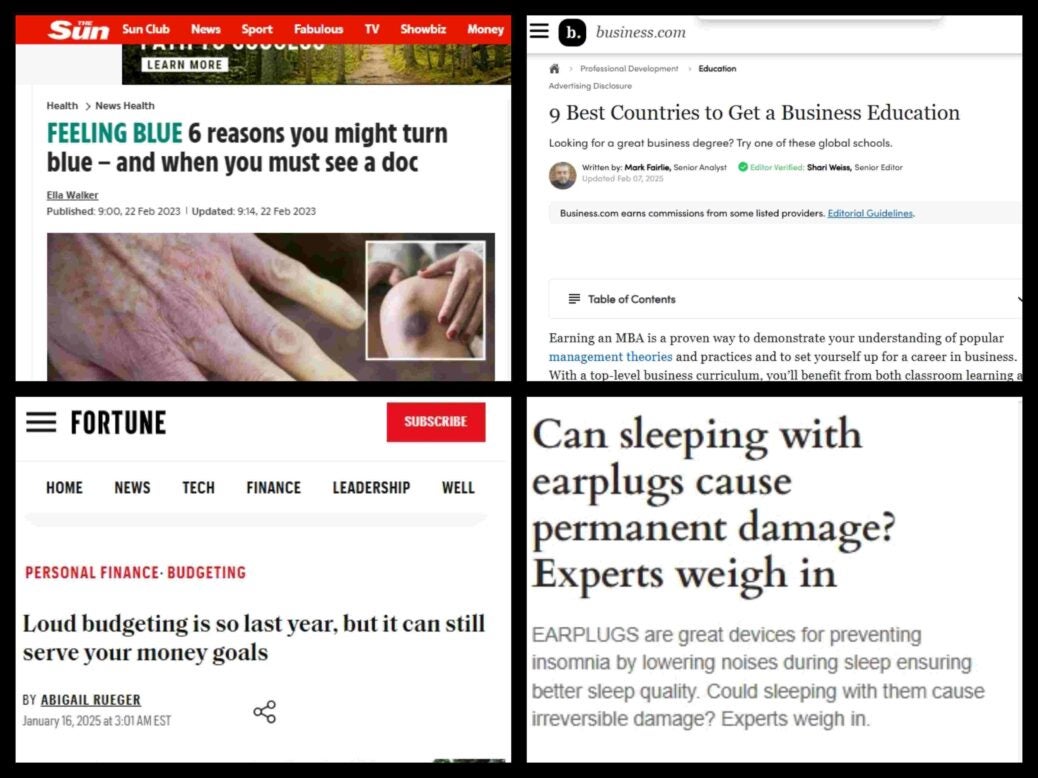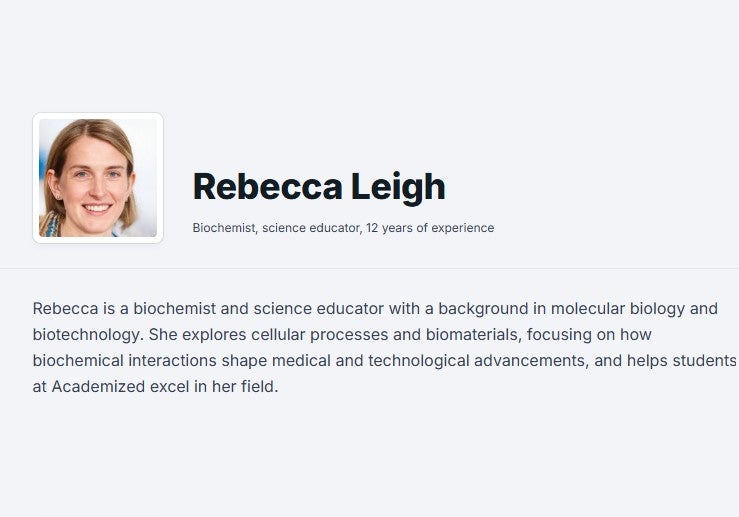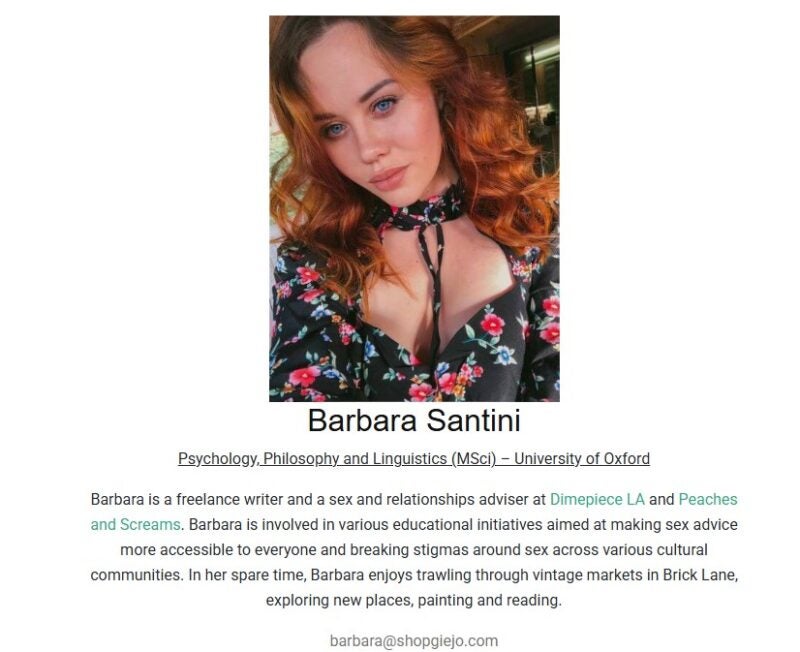
Since the launch of ChatGPT in 2022, anyone can generate comment, on any subject, in an instant.
It is a technology that appears to have fuelled a rise in expert commentators who have appeared widely in national newspapers but who are either not real, not what they seem to be or at the very least have CVs which do not justify their wide exposure in major newsbrands.
The rise in dubious commentators has been fuelled by companies that charge the PR industry in order to share quotes via email with journalists who have submitted requests for comment.
The benefit for those who reply to these journalist requests is a name-check for the brand they are associated with and sometimes even a link, which is valuable for SEO.
Press Gazette’s investigation suggests gaming this system has become a major industry which may also be a lucrative one for the brands involved.
Laura Purkess, consumer features editor and consumer champion for The Sun, says she receives what appears to be AI-written copy in large batches from one particular PR following Responsesource requests. The PR has no surname or agency name and frequently posts three or more ready-written comments on virtually any subject within less than an hour of the request being posted.
Some of these cases exist in a grey area: there may be a real person, but their connection to the company is tenuous, or their expertise is fake.
George Driscoll, PR manager for fintech app Remitly, says he used a journalist request service to source comment on food trends, and received an offer from a pastry chef who had a recipe blog.
Driscoll said: “The comment read well and her expertise was great. I wanted to verify who she was but couldn’t find much social media online which I thought was strange for a chef clearly interested in building an online brand. I saw her number was in the request information so I added it to my phone and checked her Whatsapp profile photo.”
The Whatsapp profile was a man’s photo. The female pastry chef did not exist. A reverse image search revealed that the Whatsapp profile photo belonged to an SEO person working for the recipe blog.
Rebecca is not real

A science educator called “Rebecca” put herself forward after a journalist put out a call on X for insight on the environmental impact of avocados. She offered an in-depth comment on the carbon footprint of the fruit.
“Rebecca Leigh”, who claims to be a writer for Academized, has truly wide-ranging expertise: she has also provided comments to journalists on employee benefits, budgeting, business degrees and music streaming.
She has been quoted in Fortune talking about “loud budgeting” and by Business.com talking about the best countries in which to obtain a business education (both sites are based in the US).
A profile on Academized describes her as a “biochemist and science educator”. The same byline picture also crops up on a publisher called Leaddev, for someone called Sara Sparrow. Rebecca Leigh has written for DrBicuspid.com about how to write a business plan for your dental practice where she is described as a writer for Management Essay and Lija Help (two online writing services).
When challenged via email to do something that would be difficult to do with AI image-generating software (send an image of herself with her hand in front of her face) or prove that she was an environment expert, Rebecca stopped communicating.
An Academized spokesperson told Press Gazette: “We are a professional academic paper writing company. We have been in this business for the past 11 years. We strictly forbid our writers from using any kind of AI in their papers.
“You cannot see the real names of our writers as we guarantee them full anonymity. The same goes to our customers.”
They said of the Rebecca Leigh profile: “It is a description of our writer. However, the name and the photo are not real, as we provide our writers with anonymity guarantees.”
Prolific press commentator declines to share credentials
An even more prolific commenter is Barbara Santini, a young London-based psychologist and therapist.
Press Gazette makes no assertion as to whether or not Barbara Santini falls into the same category as Rebecca Leigh. We merely set out the following facts, safe in the knowledge that there is huge public interest in investigating the sources journalists rely on in order to share public health advice.

Santini has offered comments and interviews on everything from friendship in old age to astral projection to being ‘ghosted’ by friends.
For years, her commentary has appeared in national and international publications including Vogue, Metro, Cosmopolitan, The i Paper, the Express, Hello, Shape, Cosmopolitan, Women’s Health, Yahoo, Good Housekeeping, the Telegraph, the Daily Star, the Daily Mail and The Sun.
In terms of media mentions, Santini is probably one of the most prominent psychologists in the UK.
Santini’s main online presence is on sex toy company Peaches and Screams’s website, and some CBD company and vape shop sites. Her listed address is a serviced office space in London. She also has a brief profile on a website called AboutMe (where she says she has a degree from Oxford University) and has two followers on blogging platform Medium.
She has no Linkedin or social media profiles that we have been able to find and does not appear on UK professional registers of psychologists.
Via email, Santini said that she was “unable to take calls”. Asked to provide proof of who she was in the form of qualifications or details about her practice, she did not respond.
She has been quoted in The Guardian talking about the benefits of walking (paid content), in Newsweek talking about white lies, Marie Claire talking about the meaning of money, the Daily Mirror talking about the benefits of sleeping with your dog, in The Sun talking about sexual positions, Pop Sugar talking about astrology, and Mail Online talking about how often to change your pillow.
When Press Gazette contacted Peaches and Screams via Whatsapp and informed them of our intention to publish this story, “Barbara S” got in touch with us (again via Whatsapp).
Here is an account of the exchange with Press Gazette editor Dominic Ponsford on Wednesday, 2 April:
Barbara S: “Greetings.”
Dominic: “Hello.”
Barbara S: “My name is Barbara Santini. I am reaching out to inform you that I have received your complaints and allegations against me. I have shared your contact with my lawyers. They will communicate with you. Thank you.”
Dominic: “Hi Barbara we just want to establish if you are a real person/psychologist. Can you please share your credentials? Or any other evidence you can please. We are planning to publish tomorrow.”
Barbara: “I am an accredited consultant for Peaches and Screams and my credentials and professional affiliations are a matter of record. Unsolicited demands for private information, particularly when framed as hostile ultimatums, will not be legitimised with a response.
“Should you proceed with this article, my solicitors will initiate immediate legal action for defamation, including claims for damages arising from reputational harm. Further, your conduct may constitute harassment under the Protection from Harassment Act 1997, and any misuse of personal data to advance false claims will be treated as a breach of GDPR.
“Cease all communication with me directly. Any further correspondence must be directed to my solicitors, who should be contacting you sooner.”
A further message from Barbara S sent on Sunday 6 April via Whatsapp asked Ponsford for his address. At time of writing Press Gazette has received no communications from Santini’s lawyers.
Journalists who have quoted Santini say they made contact with her via email after making a request for information on Responsesource. Santini was also, briefly, on a rival service called Qwoted.
A spokesperson for Qwoted said: “This profile was repped in Qwoted for a very short duration of time—we found immediate red flags pertaining to credentials and where the account was being accessed from. Due to our inability to fully validate her credentials, we disabled the account shortly after it was created.”
Responsesource president Tom Ritchie said: “Unfortunately, as with any network, there is always a risk of people misusing this – which is why we take any issue like this one seriously.
“When clients sign up, we run background checks to verify that they are a legitimate organisation able to represent themselves and/or their clients, and we have terms of service in place which we hold our clients accountable to. Where clients have been in breach of these terms we have terminated their access, and will continue to do so.
“Because of our own obligations to our clients, we are not in a position to talk specifically about any particular customer or case, but we have taken action, and look forward to taking on board any further supporting information you are able to provide.”
Heading towards online world which requires more verification that you are a person
In the US, Business Insider reported in 2023 on being approached by a cancer survivor who did not exist and was making up copy using AI. Allure magazine reported in January on the case of ‘Sophie Cress’, a therapist affiliated with a sex toy site, and appears not to exist.
Also in 2023, Byline Times wrote about a London GP called Charlotte Cremers offering comment to journalists via Responsesource on a range of subjects in exchange for a link to the sex toys site Peaches and Screams. Byline Times could find no mention of her on the general medical register. Her only online presence appears to be a brief profile on a website called Sol CBD Gummies.
Quotes from Cremers remain live on a Sun story about “reasons you might be turning blue” and a Daily Express story about the dangers of using ear-plugs.
Responsesource says it has “a dedicated moderation team who verify every single request, and investigate any reports of misuse immediately”.
Andy Smith, founder of another journalist requests service called Sourcee, says he aims to build a business on verified comments as the current approaches to AI content detection are not working.
He said: “Since ChatGPT’s launch in late 2022, anyone can pose as an expert with minimal effort. Existing journo request platforms have attempted to combat this with AI content detection tools, but these have proven woefully inadequate.”
By contrast, Sourcee plans to verify all responses live on its platform using either a webcam or mobile front camera. Smith said that all responses must be recorded live – which he believes will ‘future-proof’ the platform against what he believes is inevitable, a rise in deepfaked video responses, also created using AI.
Futurist Tracey Follows says that text-based ‘fake people’ will inevitably be followed by audio fakes, video fakes – and that current deepfake detection techniques may not be able to keep up.
She said: “We’ll probably get to an online world where everybody is required to have much more of a digital identification, some verification, that not only are you a person – but you are this person or that person.”
Additional reporting by Dominic Ponsford
Email pged@pressgazette.co.uk to point out mistakes, provide story tips or send in a letter for publication on our "Letters Page" blog

